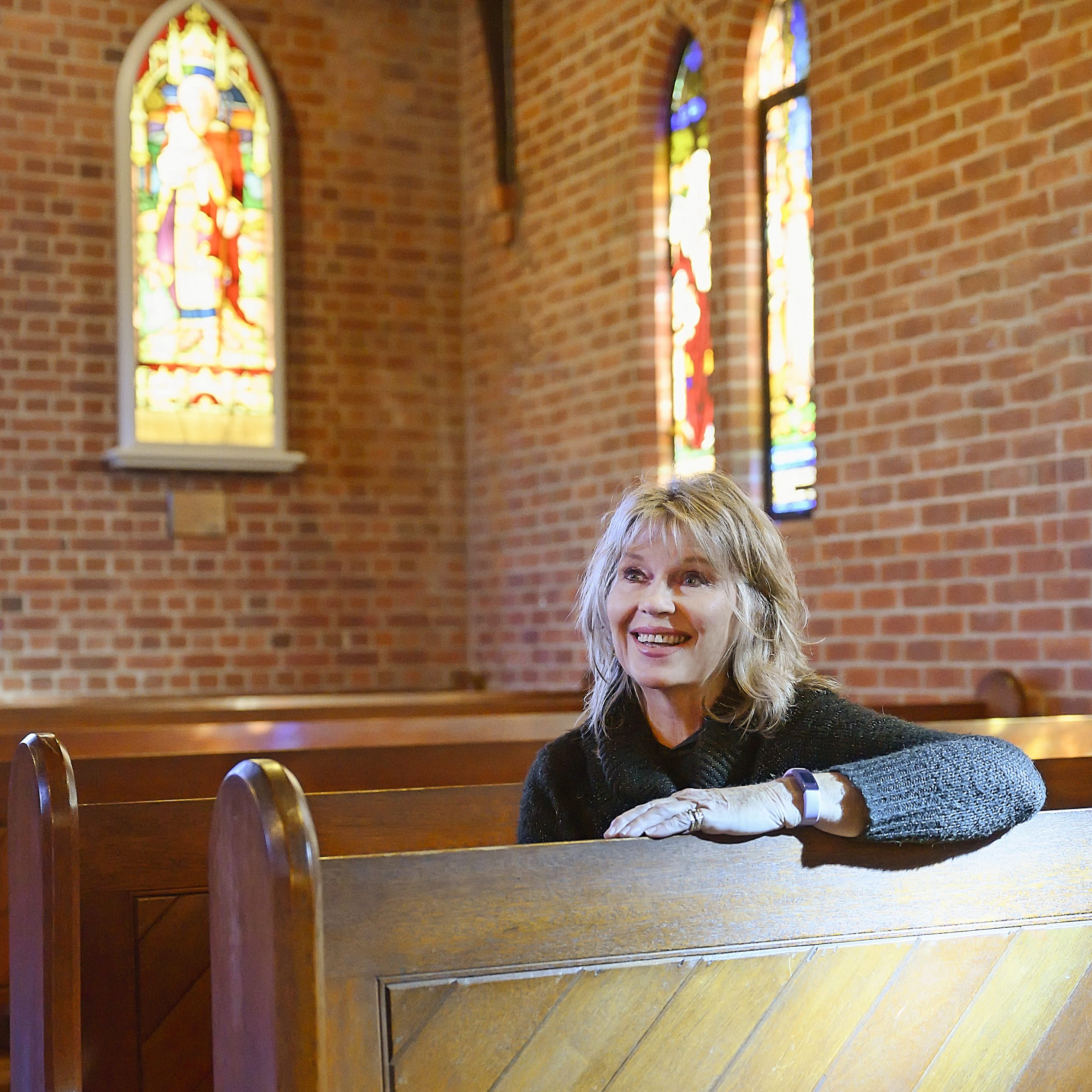
Anglican priest Rosie Wynter is on a mission to challenge expectations around what a church service is, and what services a church can offer.
Arriving in Bangalow in July 2020, she’s been through some of toughest years our region – and the world – have faced in recent memory. Rosie has her eye on the affordable housing crisis, increasing homelessness, decreasing mental health and wellbeing, global current affairs, and understands the pervasive sense of disconnection we sometimes all feel.
“At this juncture right now, in society, we actually need something deeper, more than ever. Society is screaming for it, and some people don’t know what to do with that because often the Church used to be the place to go.”
The 2021 Census reports that 56.7% of 2479 residents are of No Religion (this does not include those who reported Secular and Other Spiritual Beliefs such as Atheism, Agnosticism and Own Spiritual Beliefs) compared to 38.4% of the Australian population. That’s a lot of non-believers in our midst.
Rosie is well aware that ‘the Church’ has an image problem. There’s no denying that systemic scandal, horrific abuse and a general irrelevance to modern life have seen many leave the flock. But she is determined to plant seeds that might renew faith in our region in years to come.
Rosie’s father was a priest, who was ‘like a light that walked around’. He was also part of the reason why Rosie ignored her own calling for so many years. “I never felt I could be as good as him and that, in a sense, stopped me from following the path. I’d been ‘tapped on the shoulder’ a few times, by spirit, and I was like, ‘no, no, no, I’ve got four children. I’m really busy. I’ve got a business.’”
Her epiphany came, quite appropriately, at the Epiphany carol service at Sydney’s Christ Church St Laurence, famous for its ambiance and inclusion. “You close your eyes and think, ‘perhaps I have died?’ because it’s angelic there. I was listening to one of the carols and it was a bit discordant, quite ethereal, and I just found myself on my knees with tears pouring down my face, saying ‘okay, okay’. I was hesitant because it’s a long road.”
She did, in fact, travel that road, and today lives at the Rectory next to the Op Shop. “There’s not many priests that live near a church anymore.” It’s here that she sees a different side to life in our quaint historic village, one of desperation and disadvantage. “I’ve had people knocking on my door asking for help.”
Rosie talks of the deliberate efforts the Anglican Church has made to connect with other services, like the Men’s Shed, the CWA and the Lions, so that outreach to those in need is a natural step in supporting community from within. She laments the lack of community centre in 2479, where a coffee and chat, pantry essentials, and other services might be discretely dispensed.
“Even before the floods there was a growing problem with housing and homelessness in this area because we have a huge deficit of affordable housing, affordability, and availability for all the reasons – the short-term holiday letting situation, the greed of landlords, the impacts of the pandemic. It’s a very complex issue.
Rosie knows first-hand how unforeseen circumstances and trauma can pull the rug out from under you. “I had to escape DV situation when my children were small, and I pretty much lost everything. I lived in a caravan and tent with my children, having lost a two-storey home, and had to start over again. I actually get it. I’m not just some out of touch priest who’s turned up who’s had a cushy life and wouldn’t have a clue.
“I’ve been employed by the Diocese and Parish to work with community on these very issues. And that’s my focus: to bring inclusive love and acceptance along with assistance. What people often see in the church is lack of inclusivity, and we’re really all working not be those people. That’s why I’m doing what I’m doing, to try and make a difference in society, and to give meaning to ‘that little building on the corner’ and what it actually represents.”
“My Sunday service is different. I’ve decided not to have the traditional hymns, but we still have music. The rest is reflective, with visuals to wash over you, where you can just sit and contemplate a kind of mindfulness and meditation, and to make everyone feel wrapped up in love.
“That’s one of the issues that the Church of days gone by was very much fear based. “If you don’t do this, you’ll go to hell.” “If you don’t do this rule, you’ll be judged for eternity.” Terrifying stuff. It was also very much about the congregation ‘down there’ and the priests ‘up here’ with this huge separation between.
“One of my favourite things that Jesus said is “just be still and know.” I feel as though not being told what to think and how to act, and being allowed to go into that space where the answers come to you is a real revelation.
“A lot of people are scared of ritual, that they won’t know whether to sit or stand, so I try and keep it simple. Surely in the world we live in now there needs to be a space where you can go and feel ‘that was about love, and acceptance, and I just feel better.’”
Sally Schofield
Rosie Wynter Photo Lyn McCarthy